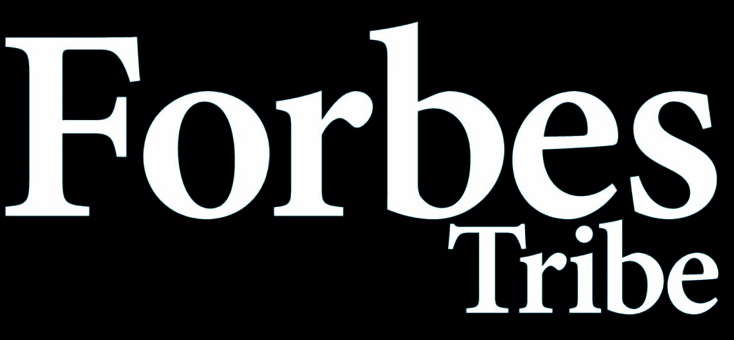A Paid Survey Debating its Role as the Fundamental Tool for Market Research
Introduction:
In the ever-evolving landscape of business and consumer dynamics. Market research plays a vital role in understanding customer preferences, behaviours, and needs. Companies utilize market research to gain valuable insights. Into their target audience, enabling them to make informed decisions and develop effective strategies. One of the widely discussed methods in market research is the use of online paid surveys. This article aims to explore the debate surrounding paid survey as the basic tool for market research.
Understanding Market Research and Paid Surveys:
Market research involves the systematic gathering and analysis of data related to a specific market, industry, or target audience. Businesses use this data to identify market trends, assess demand, understand consumer preferences, and predict future market developments. Paid survey are one of the most popular techniques used to collect such data from potential customers.
How Paid Surveys Work:
Paid survey are structured questionnaires designed to gather relevant information from individuals willing to share their opinions and insights. These surveys can be conducted online. Over the phone, or in person, and respondents are typically compensated for their time and participation. The compensation can be in the form of cash, gift cards, discounts, or other incentives, which encourages higher response rates.
Proponents of Paid Surveys
Supporters of paid survey argue that they remain a fundamental tool for market research. Due to their efficiency, speed, and cost-effectiveness. The ability to gather data from a large and diverse pool of respondents. Quickly provides businesses with valuable insights into consumer preferences and behaviors. Paid survey also offer the advantage of anonymity, encouraging respondents to share candid opinions. Additionally, the real-time analysis of data enables swift decision-making, essential in today’s fast-paced business environment.
Furthermore, proponents emphasize that advancements in technology have led to improved survey design and data analysis techniques. Sophisticated algorithms and statistical methods help mitigate some of the limitations associated with sample bias and non-response bias. Making a paid survey increasingly reliable and accurate.
Critics of Paid Surveys
On the other side of the debate, critics of a paid survey argue that while they have their merits. They cannot replace traditional qualitative research methods. They contend that a paid survey often provide superficial insights, lacking the depth required. To fully understand complex consumer behaviors and motivations. The limited question types and lack of follow-up opportunities in a paid survey. Hinder researchers from probing further into participants’ responses.
Moreover, critics raise concerns about the quality of data obtained from paid survey. They argue that respondents may rush through surveys or provide. Insincere answers to maximize their rewards, leading to inaccurate or unreliable data. Sample bias is another pressing issue, as it can significantly affect the validity of survey findings.
Finding Middle Ground: Integrating Multiple Research Methods
As the debate continues, a consensus emerges that market research is most effective. When it utilizes a combination of research methods. While paid surveys offer valuable quantitative data and cost-effective insights, they should not stand alone in comprehensive market research efforts.
By integrating paid survey with qualitative methods such as focus groups. Interviews, and observation studies, researchers can achieve a more holistic understanding of consumer behaviors and motivations. Qualitative research allows researchers to explore underlying emotions and attitudes that quantitative surveys may not capture.
Pros of Paid Surveys for Market Research:
Accessibility: Paid survey are relatively easy to administer and can reach a wide range of participants. Providing companies with diverse perspectives.
Cost-effectiveness: Compared to traditional research methods like focus groups or face-to-face interviews, conducting paid survey can be more budget-friendly.
Speed: Gathering data through paid survey can be faster than other methods. Enabling businesses to respond promptly to changing market trends.
Anonymity and Honesty: Respondents often feel more comfortable providing. Honest feedback in an anonymous survey setting, leading to more genuine responses.
Large Sample Size: The ease of reaching a large number of respondents allows for a sizable sample size. Enhancing the accuracy and reliability of the data collected.
Cons of Paid Surveys for Market Research:
Sample Bias: Certain demographic groups may be overrepresented or underrepresented in paid survey, leading to potential sample bias.
Limited Depth: Paid survey may not allow for in-depth insights into complex consumer behaviors or motivations.
Question Design Bias: Poorly constructed survey questions can lead to biased or misleading responses, compromising the integrity of the research.
Response Quality: Some respondents may rush through surveys to earn incentives, leading to inaccurate or unreliable data.
Limited Targeting: Surveys often lack the ability to specifically target niche market segments effectively.
Alternatives to Paid Surveys:
While paid survey have their merits, they are not without their limitations. As a result, market researchers often complement survey data with other methods. To gain a more comprehensive understanding of their target market. Some alternative research methods include:
Focus Groups: These small, moderated discussions involve selected participants sharing their thoughts and opinions on a particular product or service.
Interviews: In-depth one-on-one interviews provide researchers with detailed insights from participants, helping to understand their thought processes.
Observational Research: This method involves observing consumers in real-life situations, offering valuable insights into natural behaviors and decision-making.
Data Analysis: Utilizing existing data, such as sales figures and online behavior. Can provide valuable insights into consumer preferences and trends.
Ethical Considerations of Paid Surveys in Market Research
Informed Consent: Ensuring that participants provide informed consent to take part in surveys is essential. Emphasizing transparency regarding data usage and privacy.
Fair Compensation: Researchers should offer reasonable compensation for participants. Time and effort to ensure their willingness to provide honest and thoughtful responses.
Data Privacy: Safeguarding respondents’ personal information and ensuring its anonymity. And confidentiality is crucial in maintaining trust and compliance with data protection regulations.
Avoiding Manipulation: Researchers must refrain from manipulating survey. Questions or results to suit predetermined outcomes, as this compromises the integrity of the research.
Dealing with Sensitive Topics: When dealing with sensitive, issues in surveys. Researchers should handle them with care, providing support or resources if required.
Conclusion
In conclusion, A paid survey remain a crucial tool for market research. Offering significant advantages such as cost-effectiveness, wider reach, and quick data collection. However, they are not without their limitations, including sample bias and the lack of in-depth responses.The ongoing debate about the efficacy of a paid survey in market research highlights the need for a balanced approach. Combining quantitative surveys with qualitative methods allows companies to gather comprehensive and reliable data. By understanding the strengths and limitations of each research tool. Businesses can make informed decisions that resonate with their target audience, driving growth and success in an ever-evolving marketplace.







